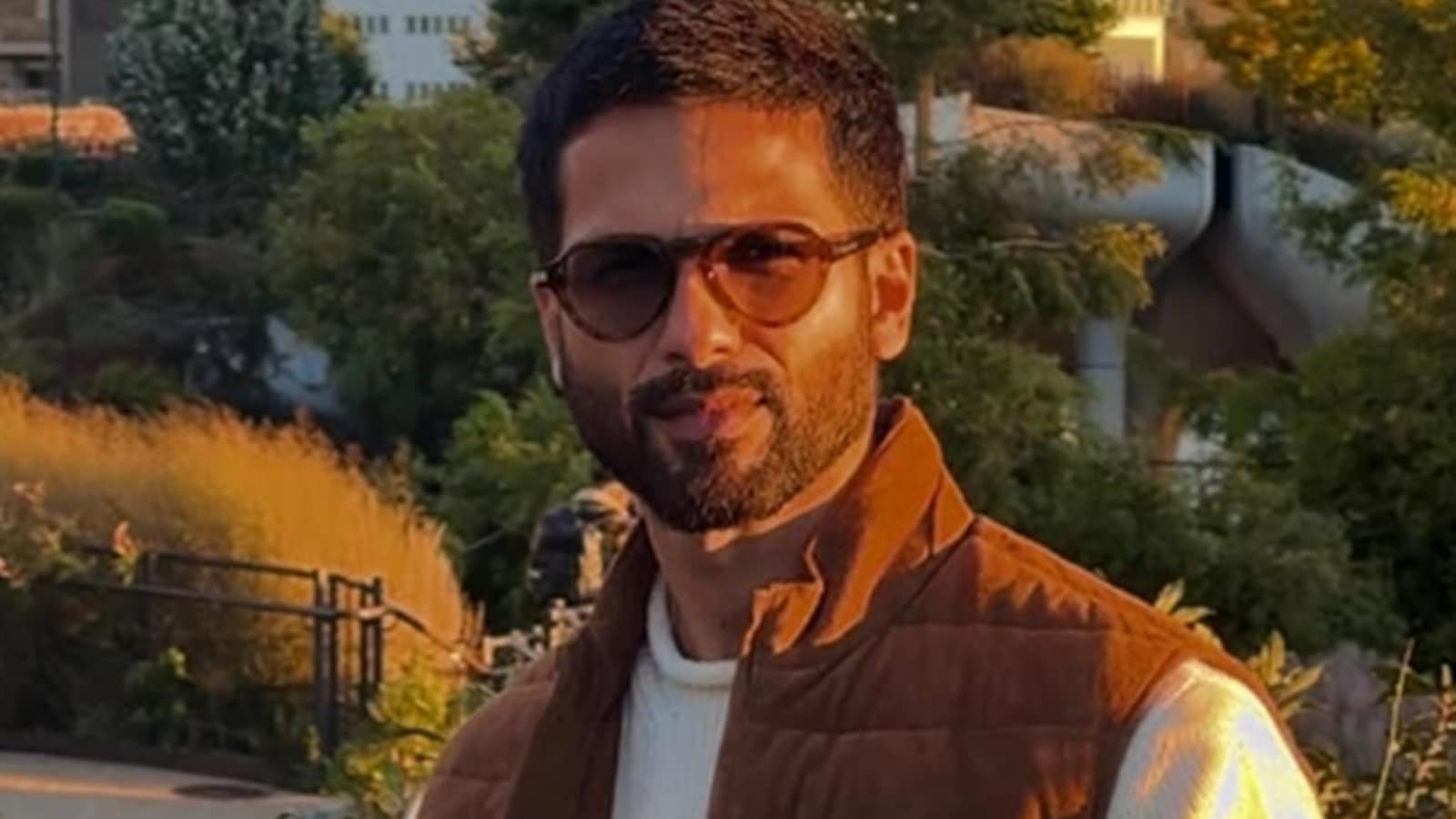📣 For more lifestyle news, click here to join our WhatsApp Channel and also follow us on Instagram
‘Aggression cannot attract people’: Shahid Kapoor on breaking stigma around men showing their vulnerable side
“When you’re an actor you also understand that vulnerability is extremely attractive,” Shahid Kapoor said.
 Shahid Kapoor on the importance of vulnerability in men (Source: Instagram/Shahid Kapoor)
Shahid Kapoor on the importance of vulnerability in men (Source: Instagram/Shahid Kapoor)Shahid Kapoor recently shared his thoughts on the importance of vulnerability in men, especially in the context of Indian society.
Appearing on Faye D’Souza’s podcast, he pointed out that from a young age, Indian men are often taught to uphold traditional roles as providers and protectors, which can place immense pressure on them. “Sometimes you just want to relax and be like, okay yaar I don’t have to keep worrying about everything and everybody all the time… and I can just maybe be vulnerable and let somebody else protect me, you know? Why can’t we flip roles sometimes?”
He continues, “It’s fair to feel like that because eventually everybody’s human. Discussing how men find it hard to reveal their vulnerable side, the Kabir Singh actor stated, “I think because I am an actor, maybe I’m comfortable with it because it’s a part of what I do. When you’re an actor you also understand that vulnerability is extremely attractive. You understand that aggression cannot attract people the way vulnerability does.”
View this post on Instagram
While vulnerability is increasingly discussed in progressive circles, it still faces resistance, particularly in communities that place a high value on traditional masculine norms. The stigma associated with vulnerability in men can create challenges for those who wish to express their emotions more freely.
How do traditional masculine norms in cultures like India shape the way men perceive vulnerability and emotional expression?
Dr Arohi Vardhan, consultant child and adolescent psychiatry, post doctoral fellowship in Psychiatry at Cadabams Mindtalk, tells indianexpress.com, “In cultures like India, traditional masculine norms have long dictated how men are expected to behave, often prioritising traits like strength, stoicism, and the role of the provider. These societal expectations shape men’s perception of vulnerability, often equating it with weakness.”
From a young age, Indian boys are often taught to ‘man up’ and suppress emotions. Dr Vardhan says that expressions of sadness, fear, or even affection are discouraged in favour of traits like toughness and resilience. “The emphasis on being the family protector and breadwinner leads to a sense of emotional isolation. Vulnerability is perceived as a liability that could compromise their ability to fulfill these roles.”
Emotional expression, particularly crying or articulating insecurities, is often labelled as ‘feminine,’ reinforcing the idea that men must suppress such behaviours. Communities tend to reward men for their stoicism, while mocking or marginalising those who display emotional openness, perpetuating a cycle of emotional repression.
 While modern discourse praises vulnerability for fostering deeper connections and authenticity, traditional narratives still dominate workplace dynamics, relationships, and media portrayals, where stoicism and assertiveness are rewarded.
While modern discourse praises vulnerability for fostering deeper connections and authenticity, traditional narratives still dominate workplace dynamics, relationships, and media portrayals, where stoicism and assertiveness are rewarded.
Why is there often a stigma attached to vulnerability in men, even when it’s celebrated in theory as a positive trait?
Dr Vardhan explains, “Men often fear being perceived as weak or inadequate by peers, family, or romantic partners. This judgment stems from societal standards that equate masculinity with dominance and invulnerability.”
While modern discourse praises vulnerability for fostering deeper connections and authenticity, traditional narratives still dominate workplace dynamics, relationships, and media portrayals, where stoicism and assertiveness are rewarded, highlights Dr Vardhan.
The concept of ‘toxic masculinity’ perpetuates the idea that emotional expression undermines a man’s ability to lead or protect. This creates internalised pressure to conform to outdated norms. “Although public figures like Shahid Kapoor celebrate vulnerability, such portrayals are relatively new. The absence of consistent male role models who openly embrace emotional expression contributes to the stigma,” notes Dr Vardhan.
How can men navigate societal pressures while embracing emotional openness and vulnerability?
Dr Vardhan mentions that embracing vulnerability amidst societal pressures involves recognising it as a strength, building emotional awareness through practices like mindfulness, and seeking safe spaces for expression. Redefining masculinity to include empathy and emotional intelligence while normalising mental health conversations and therapy helps men balance expectations and well-being, fostering healthier relationships and personal growth.
📣 For more lifestyle news, click here to join our WhatsApp Channel and also follow us on Instagram
- 01
- 02
- 03
- 04
- 05



























